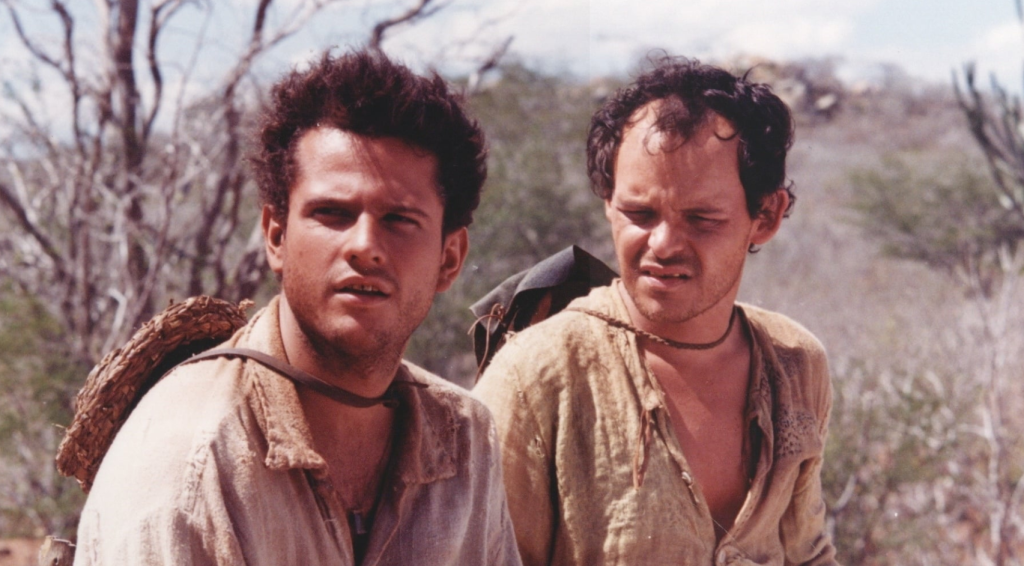Hey there, fellow film enthusiast! Have you ever wondered how the bonds of family can be stretched and tested by time and circumstance? In our latest review, we dive into the poignant and thought-provoking film, The Second Mother. Imagine being in Val’s shoes, a devoted nanny in bustling São Paulo, who has spent 13 long years separated from her own daughter, Jessica, to provide for her. Just as Val’s employer’s son, Fabinho, is gearing up for his university entrance exams, Jessica re-enters her life, bringing with her a whirlwind of emotions and a challenge to the status quo.

With stellar performances by Regina Casé and Camila Márdila, this film brilliantly captures the delicate balance of humor and heartache. How does Jessica’s presence upend Val’s carefully crafted routine? And what does it reveal about the rigid class structures that still persist today? Trust me, you won’t want to miss this insightful exploration of family, sacrifice, and societal norms. Let’s unravel these layers together on Popcorn Reviews!
Review of The Second Mother
When I first watched The Second Mother, I was struck by the authenticity and depth of the characters. Regina Casé’s portrayal of Val, the devoted nanny, is nothing short of mesmerizing. Her dedication to Fabinho, the son of her affluent employers, is evident in every scene, making you feel the weight of her sacrifices. But the real game-changer is Jessica, Val’s estranged daughter, played brilliantly by Camila Márdila. Jessica’s arrival in São Paulo is like a breath of fresh air, challenging the rigid class structures and societal norms that Val has grown accustomed to. It’s fascinating to see how Jessica’s presence disrupts the delicate balance Val has maintained for years. Have you ever wondered what it’s like to confront the very systems that you have been complicit in upholding? Jessica does just that, and it’s both empowering and heart-wrenching to watch.
One of the most poignant moments in the film is when Jessica boldly questions the status quo, asking why certain areas of the house are off-limits to them. This moment is a powerful commentary on the invisible barriers that exist within society. The film does an excellent job of highlighting these subtle yet significant distinctions without being overly preachy. Instead, it uses humor and heartache to draw you in, making you reflect on your own experiences and biases. I found myself laughing at Val’s quirky habits one moment and tearing up at her struggles the next. The film’s ability to balance these emotions is a testament to its exceptional storytelling. If you’re looking for a film that not only entertains but also makes you think, The Second Mother is a must-watch. It’s a beautiful exploration of family dynamics, sacrifice, and the courage it takes to challenge societal norms.
Rating: 4.5/5
Lessons Learned from The Second Mother
Watching The Second Mother offers a treasure trove of lessons that resonate deeply with anyone who has juggled the complexities of family dynamics and societal expectations. One of the most profound takeaways is the stark contrast between personal sacrifice and the pursuit of a better life. Val’s journey as a dedicated nanny who sacrifices her own relationship with her daughter, Jessica, to support her employer’s family is heart-wrenching. It makes you ponder: At what point does self-sacrifice become self-neglect? Val’s story is a poignant reminder that while providing for loved ones is noble, maintaining a personal connection with them is equally vital. Her emotional reunion with Jessica underscores the importance of balancing professional obligations with personal relationships.
Another significant lesson from the film is the critique of rigid class structures and how they shape our interactions and self-worth. Jessica’s arrival disrupts the established order in Val’s employer’s household, challenging the unspoken rules that govern their lives. Her boldness in questioning these norms serves as a catalyst for change, not just for Val, but for everyone around her. It prompts us to reflect on our own societal structures and the invisible barriers we often accept without question. The film beautifully illustrates that sometimes, it takes an outsider’s perspective to highlight the absurdity of these divisions and inspire us to seek a more equitable existence.
Here are some key lessons we can take away from The Second Mother:
- Value Personal Connections: No matter how demanding life gets, nurturing relationships with loved ones should always be a priority.
- Question Societal Norms: Challenge the status quo and be open to perspectives that question established norms.
- Balance Sacrifice and Self-Care: While providing for others is important, don’t lose sight of your own needs and well-being.
Ultimately, The Second Mother is a powerful narrative about love, sacrifice, and the courage to challenge societal boundaries. It’s a film that stays with you long after the credits roll, urging you to reevaluate your own life choices and the societal norms you adhere to.
The best of The Second Mother
One of the standout aspects of The Second Mother is its masterful portrayal of complex family dynamics and class distinctions. The film’s narrative is both heart-wrenching and heartwarming, weaving together moments of genuine connection and stark societal commentary. Val, played brilliantly by Regina Casé, embodies the sacrifices many parents make, putting their own lives on hold to provide better opportunities for their children. This resonates deeply with anyone who has experienced or witnessed the lengths parents go to for their kids. When Jessica, portrayed by Camila Márdila, re-enters Val’s life, the film beautifully captures the awkward and emotional reconnection between mother and daughter, making us ponder our own familial bonds.
Another remarkable point is the film’s subtle critique of social class and privilege. The interactions between Val, Jessica, and their employers provide a poignant commentary on the rigid class structures that exist within society. We see this vividly portrayed through Val’s unwavering dedication to Fabinho, her employer’s son, juxtaposed with the strained relationship she has with her own daughter. This contrast not only highlights the emotional toll of Val’s sacrifices but also exposes the often unspoken social hierarchies that govern our interactions. The film doesn’t shy away from these difficult topics, instead, it invites viewers to reflect on their own perceptions and biases.
To sum it up, The Second Mother excels in its storytelling by blending humor with heartache, and personal sacrifice with societal critique. It’s a film that stays with you long after the credits roll, prompting you to examine your own relationships and the societal structures that shape them.
Week points of The Second Mother
While The Second Mother shines in many areas, it’s not without its flaws. One of the more noticeable weak points is its pacing. The film starts off strong, immersing us in Val’s world and her relationship with the family she works for. However, as the story progresses, it tends to drag in places. There are moments where the narrative feels a bit too slow, and some scenes could have been trimmed without losing the essence of the story. This can make it challenging for viewers who prefer a more consistently paced film to stay fully engaged throughout.
Another aspect that might not sit well with everyone is the portrayal of class differences. The film does an excellent job of highlighting the disparities between the wealthy and the working class, but at times, it can come across as a bit heavy-handed. The characters representing the upper class are often depicted in a somewhat stereotypical manner, which can feel a bit one-dimensional. While this approach effectively drives the point home about societal norms and class rigidity, it might leave some viewers wishing for a more nuanced portrayal of these characters.
Additionally, the film’s resolution may leave some viewers wanting more. Without giving too much away, the ending wraps up rather quickly and might feel somewhat abrupt. After investing so much time in the characters and their journeys, the conclusion doesn’t quite provide the emotional payoff one might expect. It’s almost as if the film’s rich, complex narrative deserved a more detailed and satisfying resolution.
Despite these issues, The Second Mother remains a compelling and thought-provoking film. It’s just that, like any piece of art, it has its imperfections. But perhaps that’s what makes it so relatable and real—just like the lives it portrays.
Quotes from The Second Mother
Hey there, fellow film enthusiast! Have you ever wondered how a few choice words can encapsulate the essence of a film? Well, The Second Mother is packed with memorable quotes that do just that, shedding light on its intricate themes of family, sacrifice, and societal norms. These lines not only drive the narrative forward but also linger in your mind long after the credits roll.
One of the most poignant quotes comes from Val herself: “There’s a right way of doing things, Jessica.” This line beautifully encapsulates the tension between tradition and change, a central theme of the movie. Val’s adherence to the ‘right way’ reflects her internal struggle to maintain order in a life that’s been anything but orderly. Jessica’s response to this—her defiance and quest for a better life—challenges these deeply ingrained norms and invites us to question our own biases.
Another powerful moment is when Jessica says, “Why do you treat them like they’re better than us?” This question strikes at the heart of the class dynamics that The Second Mother so poignantly explores. It’s a moment that forces both Val and the audience to confront uncomfortable truths about social hierarchy and self-worth. Jessica’s boldness here serves as a catalyst for change, not just for Val but for everyone around her.
These quotes are more than just lines of dialogue; they’re windows into the characters’ souls and mirrors reflecting our own societal issues. They remind us that while the film is set in Brazil, its themes are universally relatable. So, as you watch The Second Mother and hear these powerful words, take a moment to reflect on how they resonate with your own experiences and beliefs. Trust me, it will make your viewing experience all the more enriching.




